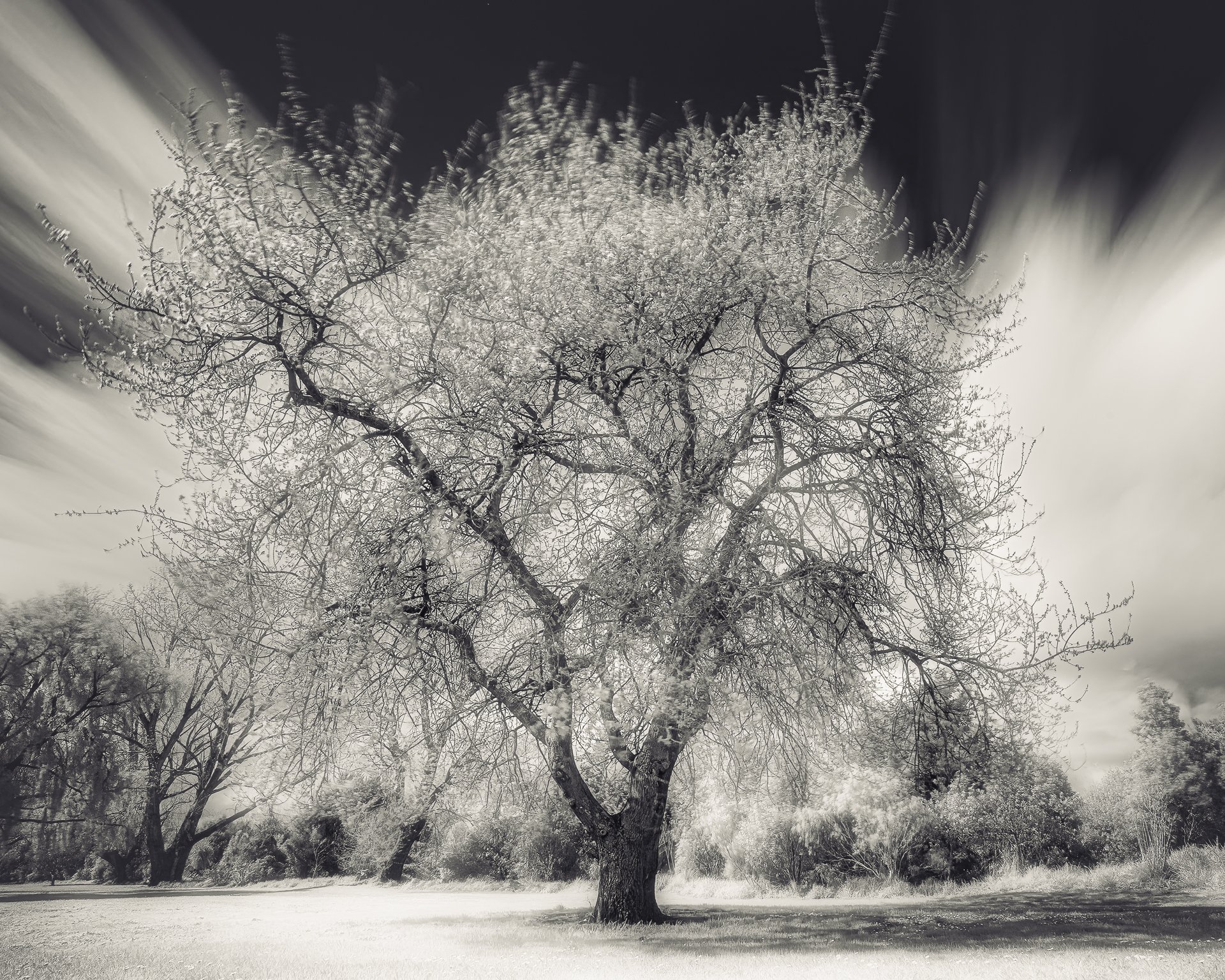Longer Exposures
Delicate Peace - Lake Taupo
Opportunities don’t always come gift wrapped. Sometimes they are disguised in disappointment, or lie behind a closed door. A few weeks ago, I had some plans fall through, nothing major but it left a weekend free. The annual Manawatu camera club trip, that’s a question I hadn’t even thought about. The timing just hadn’t worked. But now… For the first time in a long time I wasn’t running it, but the promising weather forecast filled me with hope and anticipation.
Fine settled weather, blue skies and warm afternoons. It was nice to say goodbye to the winter / spring storms that had been such a feature of the last few months. The forecasts looked great to try and work on my infra red work. Year 1 was about trying new things, low hanging fruit. Year 2 was about learning what I like and what I don’t. Year 3 was going to be building on what I had learned. Like a favorite chisel, infra red is a tool, it enables you to do things which if done other ways wouldn’t be as good.
Longer exposures is one thing that my infra red setup enables. The magic comes from the fact that I have never converted my Canon 6D to infrared. Instead I ride the fine line between quality and imperfection, and through this I can find a new world to explore. The quality comes from the beautiful sensor in the 6D makes great low noise images with good colour and dynamic range. The imperfection is the blocking IR filter in front of the sensor which lets more infra red light past than any other full frame camera I know. There are crop sensor cameras which have worse IR filters but then the image quality is worse. I like to ride this fine line, push it to it’s limit and see what is possible.
“I ride the fine line between quality and imperfection, and through this I can find a new world to explore.”
A classic example of this is the image above, The weather conditions were midday sun, gentle waves lapping at my feet. Temperature was around 20 degrees and I had sunscreen on because it was that sunny. My goal was to make one of those dreamy long exposure water shots, but I could not wait around till twilight. I decided to use my infra red setup to make the shot possible, using my unconverted Canon 6D mki running Magic Lantern firmware. The lens was my Canon 24-105mm L lens (at 95mm) at F11, a 720 nm Zomei filter is screwed on to the front of the lens to block normal light, and ISO is set at 50. All of this combined allow me to use a 180 sec's exposure to get the look I wanted in the water.
If you read any infra red blog or website, they will all tell you to get the camera converted for the “best quality”. But an old unconverted camera with all its imperfections can yield results that make what seems impossible possible. There is a famous expression, trust but verify. I think for photography, the expression should be listen but try it for yourself as well. Cameras are machines and machines are not perfect, they have character-istics and through this it makes unique results. Maybe only slightly different but that difference might make all the difference.
“There is a famous expression, trust but verify. I think for photography, the expression should be listen but try it for yourself”


